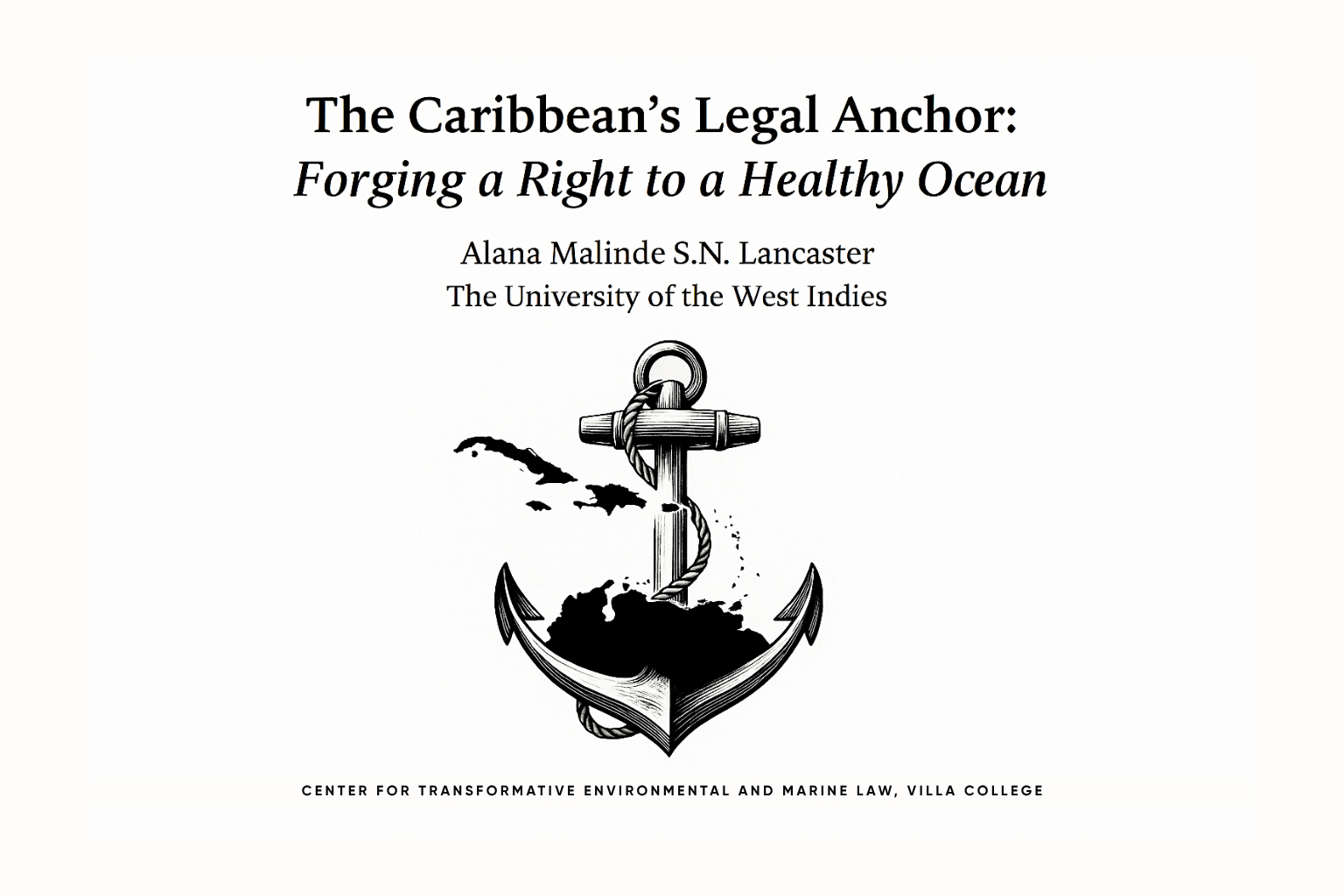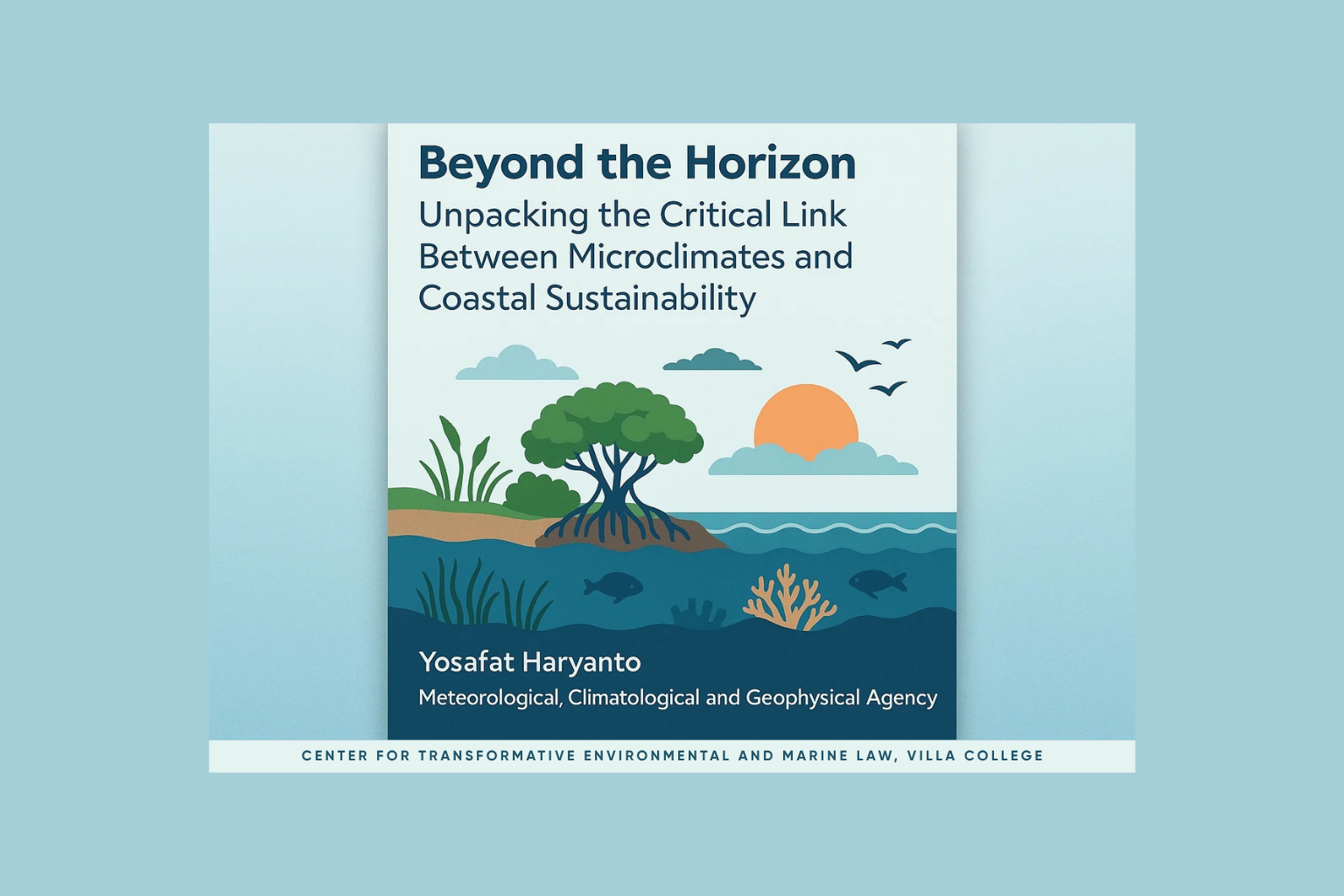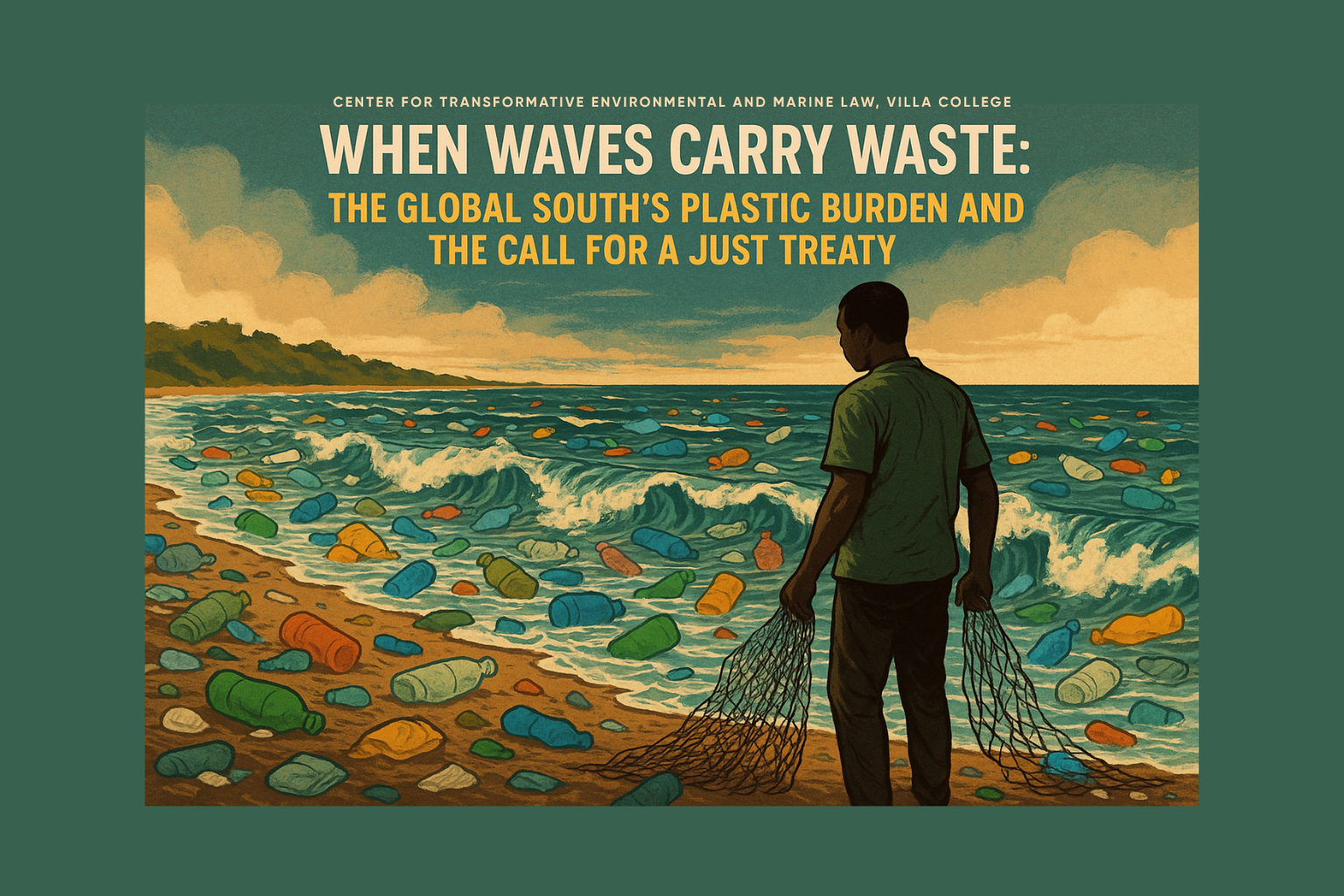World Ocean’s Day Series: A Sea of Plastic, A Void of Law: Navigating the Legal Gaps of the Great Pacific Garbage Patch
As we reflect on the messages from last month's World Oceans Day, we are proud to highlight a crucial piece of research from our recently launched collection, "The Oceans-Sustaining What Sustains Us." A compelling chapter by Lindsay de Jong of Erasmus University Rotterdam, titled "THE GREAT PACIFIC GARBAGE PATCH: LEGAL GAPS IN MARINE AREAS BEYOND NATIONAL JURISDICTION," delves into one of the most visible and daunting environmental challenges of our time. The research poses a fundamental question: does our current international legal system have the tools to prevent a "Sea of Plastic" from defining our future, or is a new approach desperately needed?
The paper brings the scale of the problem into sharp focus, centering on the Great Pacific Garbage Patch as a prime example of a systemic failure. This enormous accumulation of plastic waste, potentially as vast as the state of Texas, exists in what are known as Marine Areas Beyond National Jurisdiction (ABNJ), which constitute nearly half of our planet's surface. De Jong's analysis explains this is a textbook example of the "tragedy of the commons." Since these waters belong to no single state, there is no clear responsibility or economic incentive for any one nation to undertake the monumental task of cleaning up a crisis that everyone contributes to but for which no one is held accountable. This lack of jurisdiction creates a perverse incentive to turn a blind eye, allowing the problem to grow unchecked.
De Jong provides a thorough analysis of the existing legal landscape, revealing critical weaknesses. While foundational agreements are in place, they do not offer a complete solution. The United Nations Convention on the Law of the Sea (UNCLOS), often called the constitution for the oceans, establishes a general duty for states to protect and preserve the marine environment. However, its provisions lack the specificity and enforcement mechanisms needed to compel action against plastic pollution, especially from land-based sources. Other key instruments with more direct rules include the MARPOL convention and the London Dumping Convention, but their impact is limited as they primarily address pollution from ships, which accounts for only about 20% of the plastic debris in the Great Pacific Garbage Patch. This leaves the overwhelming majority of the problem, which originates on land, without effective international regulation.
Despite this challenging legal landscape, the research points to sources of hope and innovation. The efforts of The Ocean Cleanup, a Dutch non-profit, demonstrate that direct action is possible. This private initiative has made significant strides in removing plastic from the ocean and has done so through an innovative legal arrangement with the Dutch government, which translates the state's responsibilities under UNCLOS into binding obligations for the organization. Yet, as de Jong cautions, such voluntary initiatives, while commendable, are not a substitute for robust state action and international cooperation. A single actor cannot solve a global crisis. The paper argues that effectively combating plastic pollution in the high seas requires concrete, binding, and enforceable legal obligations for all nations.
Ultimately, this research serves as a powerful call to action. The Great Pacific Garbage Patch is more than a collection of waste; it is a striking symptom of the inadequacy of our current international frameworks in addressing modern environmental threats. As we look to the future of our planet's blue heart, it is clear that we cannot rely on patchwork solutions. It is time for international law to turn the tide, fostering global cooperation and creating the strong legislation needed to protect our shared oceans for generations to come.
To delve deeper into the legal complexities surrounding the Great Pacific Garbage Patch and the innovative solutions being proposed, you can read the full research chapter here.
de Jong, L. (2025). The Great Pacific Garbage Patch: Legal Gaps in Marine Areas Beyond National Jurisdiction. In T. Sanni (Ed.), The Oceans-Sustaining what Sustains Us (pp. 9-22). Center for Transformative Environmental and Marine Law, Faculty of Shariah and Law, ������Ƶ, Maldives.



